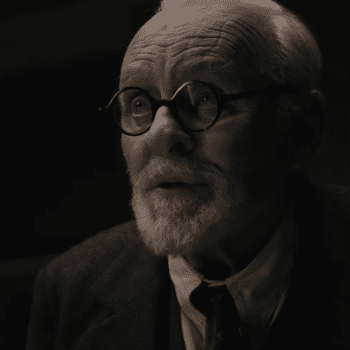
I met Carrie Fisher when I was 8 years old.
Well, “meet” is perhaps too strong a word. The actress, who died this morning at age 60, didn’t see me. I was just one of dozens of people in a tiny Taos, N.M. movie theater, watching Star Wars.
She wasn’t Carrie Fisher to me, of course, but Princess Leia, a beautiful galactic heroine with a rather unflattering hairstyle. She fired laser guns and swung on ropes and cracked jokes like no other princess I’d seen. She was awesome. While most girls had the cooties at the time, this was the sort of woman that, even at that tender age, I could’ve seen myself marrying when the time was right. Too bad she seemed to have eyes for that Skywalker guy.
For years, and for many thousands of people, Carrie Fisher was Princess Leia. It was all we knew about her and, frankly, all we really cared to know. The two were synonymous.
And like it or not, she and the character were synonymous for all of her short life.
Fisher knew all about the dichotomy of fame. Her mother was Debbie Reynolds, America’s Sweetheart. Her father was singer Eddie Fisher. “I was born into big celebrity,” she wrote once. “It could only diminish.” But as Leia, she arguably became more famous than either of her parents. It was seemingly the highlight of her acting career—and she hit it when she was just 20. Before she could vote or even legally drink in most states, Fisher was one of the most recognizable people on the planet.
But becoming so famous so young—particularly for such an iconic role—can be difficult. In an interview with Good Morning America, she said that people often call her Princess Leia out on the street, expecting her to turn around. She once said that Leia “follows me around like a vague smell.”
In an essay for Newsweek, she wrote, “Lately I feel like I’m Minnie Mouse—the identity of Princess Leia so eclipses any other identity that I’ve ever had.” She says that her face, even now, seems to show up everywhere. She’d probably be a billionaire now had she not signed away the rights to her “likeness.” “In those days, there was no such thing as a likeness,’ which is a funny thing to say coming from the family that I came from.” She went on in her Newsweek piece:
As I’ve gone along, people will come to me and say, “We got the licensing from George Lucas to make these socks.” So my daughter can walk around on my face. I was shopping at Williams-Sonoma, and they’re selling little sticks of Princess Leia that you put in your cupcake. Who wouldn’t need those? I paid for it. How much money could I have made from all this stuff? I don’t want to know. It’s too upsetting. Yet funny. For example, I found out recently that I am a type of marijuana. A friend of my daughter’s actually went to one of those medical places, and she told me there was a type of marijuana named Princess Leia. I never liked marijuana, so the fact that I’m a type of marijuana is ironic.
But in her acting heyday Carrie Fisher liked, or at least used, plenty of other drugs. Even as her face was plastered seemingly across the galaxy, the actress behind it was struggling with depression, anxiety and a bevy of addictions. We fans knew Princess Leia pretty well—better, maybe, than we know some of our aunts and uncles and cousins. But we didn’t know the thing about Carrie Fisher. As Leia rescued Han Solo from his carbonite encasing, Fisher was in need of some help herself.
Celebrity is a strange thing, with its illusion of intimacy. Of all the magic of movies, this is perhaps its darkest alchemy. We fall in love with a character and forget the person who brought it to life.
As Star Wars mania retreated to the pop culture hinterlands in the late 1980s and 1990s, Princess Leia did, too. Fisher’s Hollywood star faded and flickered dimly. She appeared in a few more movies, but she didn’t become the ubiquitous screen presence I expected, never found the level of fame that, say, Harrison Ford found after Han Solo.
But she didn’t go away. She left the spotlight, picked up a pen and began writing. She wrote about herself—honest, painful and exceedingly funny stuff about her problems, anxieties and career. Her semi-autobiographical work Postcards from the Edge became a smash bestseller and hit movie. She starred in a one-woman play, Wishful Drinking, which later became a book. This year she released a memoire titled The Princess Diarist.
“I always wrote,” she told A.V. Club. “I wrote from when I was 12. That was therapeutic for me in those days. I wrote things to get them out of feeling them, and onto paper. So writing in a way saved me, kept me company. I did the traditional thing with falling in love with words, reading books and underlining lines I liked and words I didn’t know.”
And through that writing she allowed us, remarkably, to meet her, in a way that few celebrities ever allow. She was the Wizard of her own Oz, a woman who stepped from behind the curtain and revealed herself. And in so doing, she taught us something pretty interesting about not just the nature of celebrity, but the dichotomy at play within our own lives.
Sometimes the people we are and the people we try to represent as ourselves can be quite different. We give the world our Facebook pictures, our witty one-liners, our smiling church faces. Underneath we can be quite different. We harbor unspoken thoughts. We feel emotions that we never show for fear of rejection. We wallow in insecurities even as we try to wish them away.
“I am a spy in the house of me,” Fisher once wrote. “I report back from the front lines of the battle that is me.” Maybe we’re all a little like that. We have our fronts. We have our propaganda machines. We try to persuade people that we’re wonderful or important or worthy of love. We try to claim self-worth in millions of little ways.
But it gets to a point, sometimes, where those people don’t have much to do with us at all. They’re roles we play. People meet us. They might feel like they know us. But they don’t know us at all.
I never met Fisher. And yet, because she had the courage to drop the façade and give her insight into herself—her messy, broken, beautiful, funny self—I feel like I know her. And you know what? She was worth knowing more than Princess Leia ever was.













